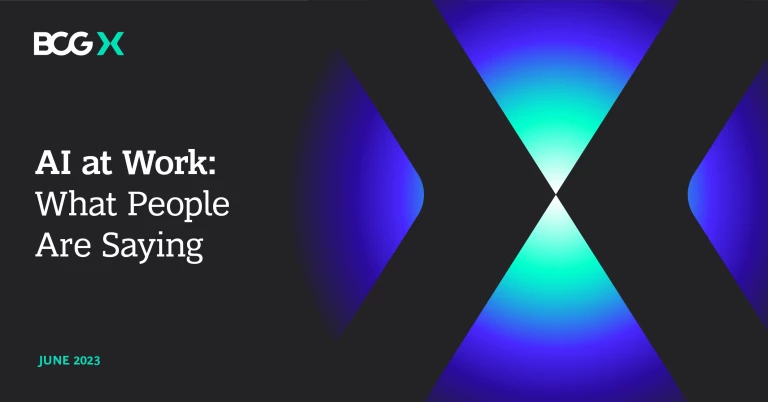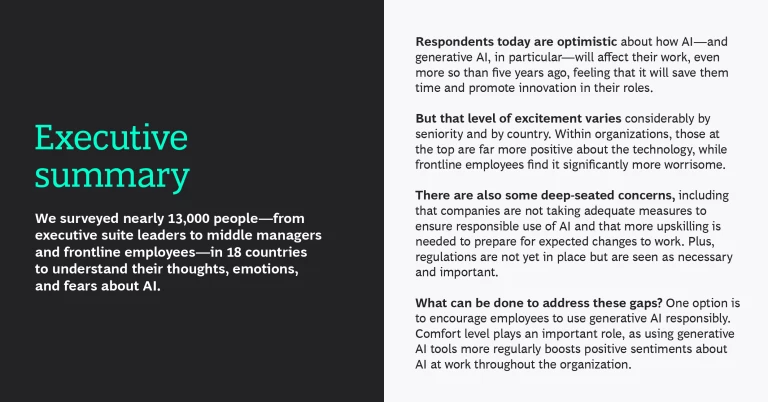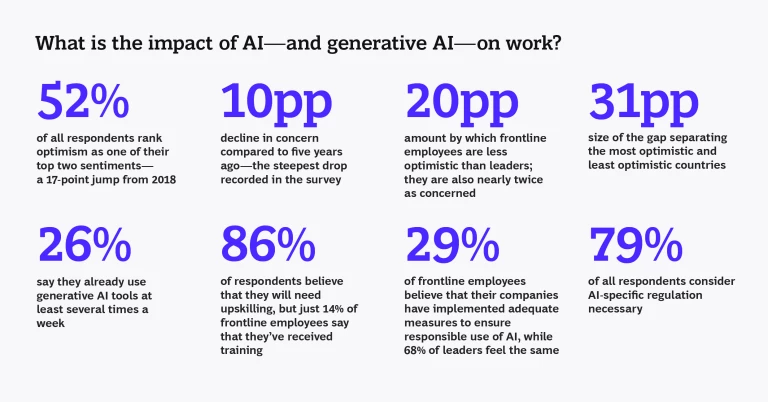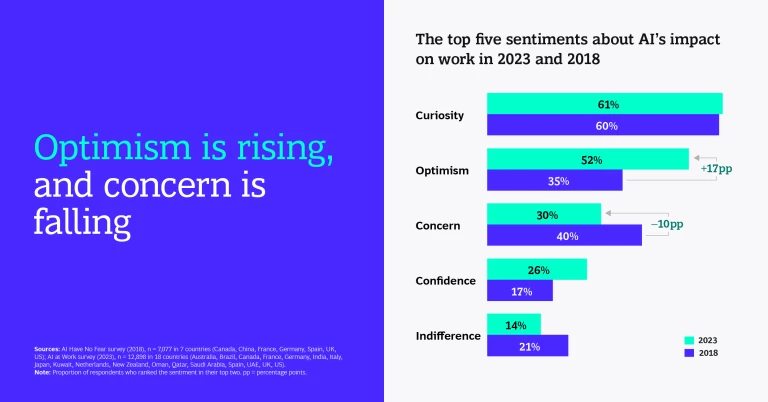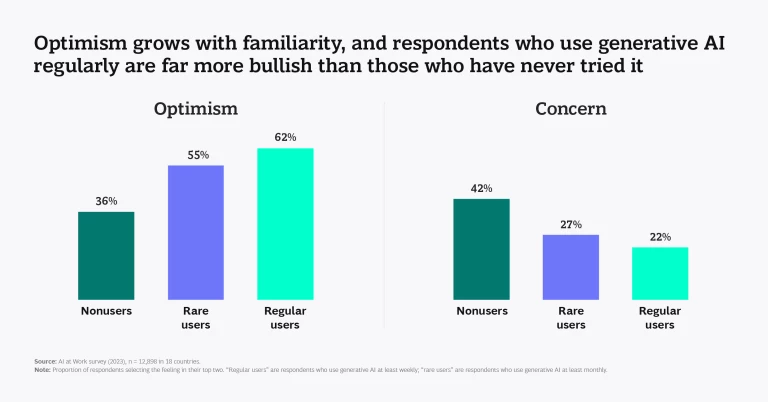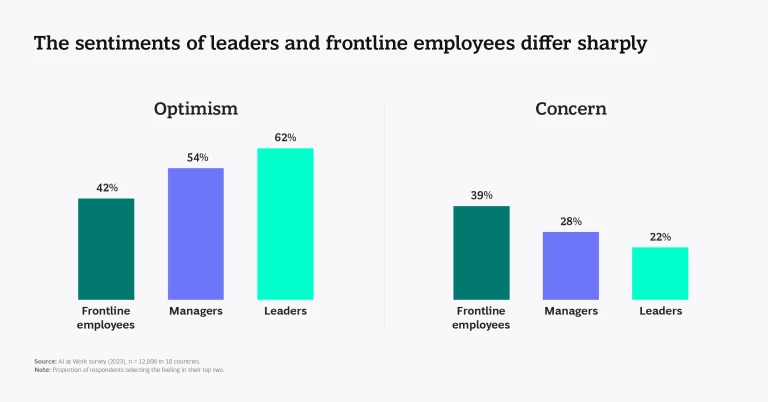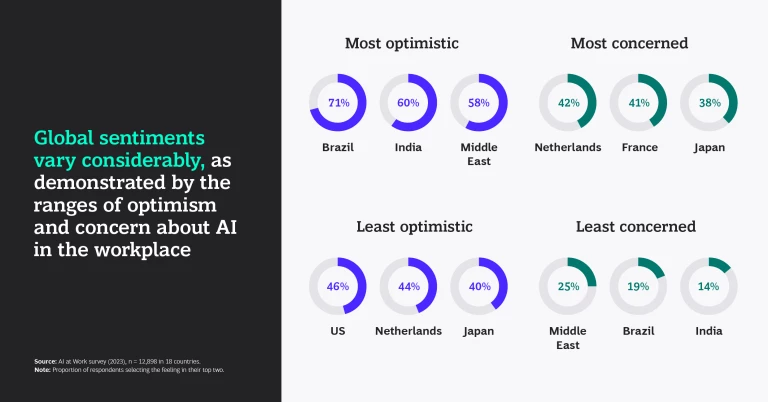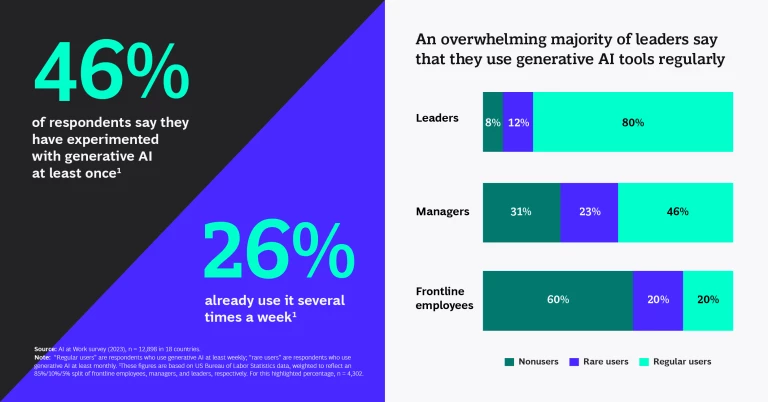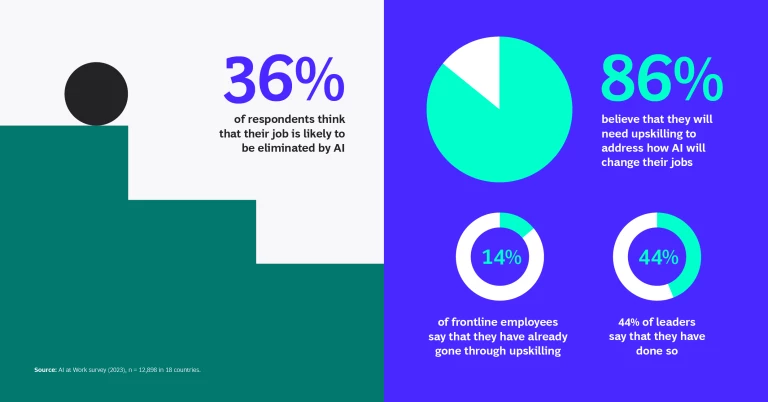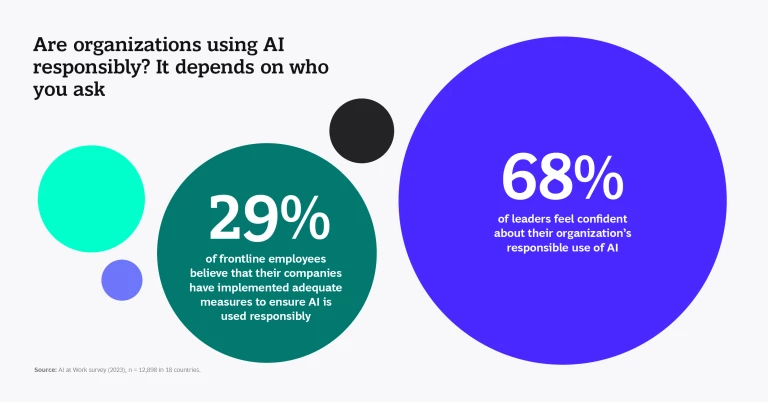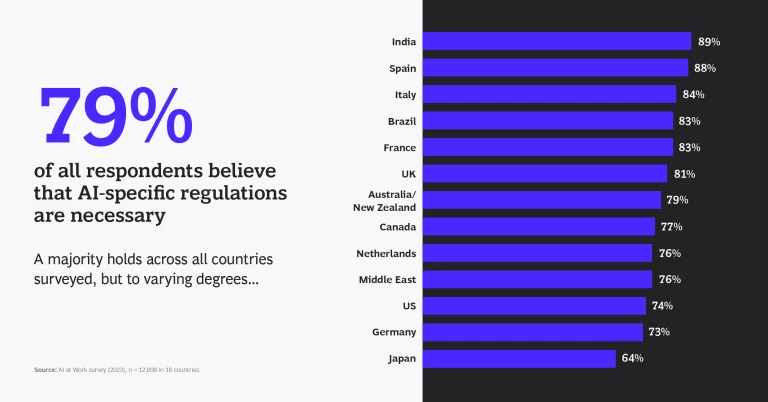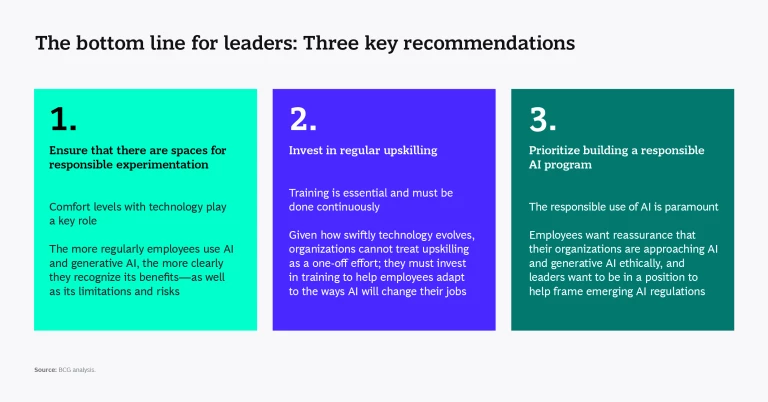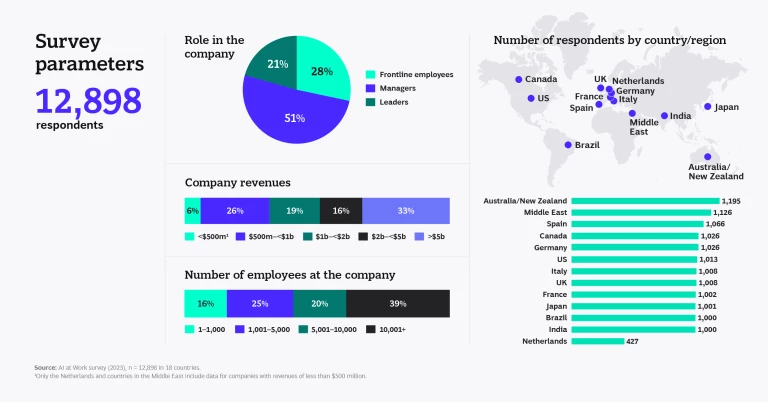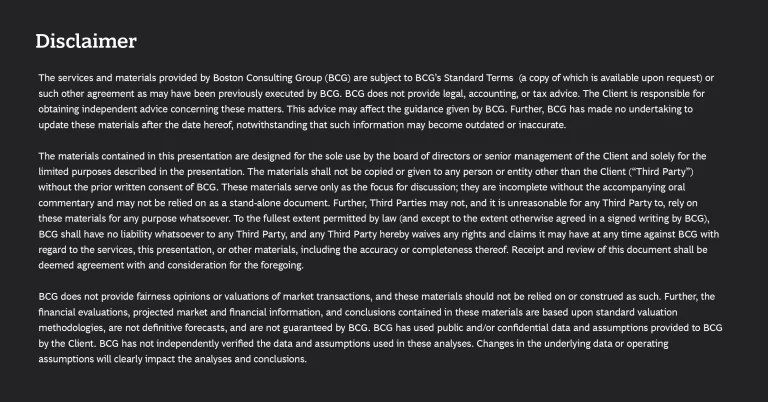The explosive popularity of ChatGPT and other forms of generative AI suggests that we are witnessing the start of a new order for business and society.
How do people in the workplace who have a front-row seat for the AI revolution feel about the technology sweeping across the corporate landscape? We surveyed nearly 13,000 people—from executive suite leaders to middle managers and frontline employees—in 18 countries to understand their thoughts, emotions, and fears about AI. They provided us with a number of insights:
- Survey respondents are more optimistic than concerned about AI.
- But there are vast differences in perceptions of AI between leaders at the top and employees on the frontline—and companies need to address those differences.
- Employees recognize the need for training and upskilling that this new era will require, but few have actually received it.
- Almost everyone sees the need for responsible AI and regulation.
A Tale of Two Cities
The average respondent today is far more optimistic and less concerned than the average respondent was five years ago—when we conducted a similar survey and when generative AI was still in the lab—but the average figure disguises two key differences among employee groups:
- Leaders are much more optimistic than frontline employees about AI (62% vs. 42%).
- Regular users of generative AI are much more optimistic than nonusers (62% vs. 36%).
- Regular users of generative AI also recognize the technology’s transformative potential, both to improve and to threaten work.
This tale of two cities should inform organizations as they implement AI and generative AI. Leaders should make sure that they do not get ahead of their people and leave their frontline behind. The two best ways to make progress throughout the organization are to encourage frontline employees to use AI responsibly and to train them in the skills that the new era will require. To date, however, companies have tended to focus AI training on leaders:
- 44% of leaders say that they have received training to sharpen their skills and stay relevant.
- Only 14% of front-line employees say that they have received similar training.
The Rise in AI Usage, Especially at the Top
The percentage of respondents who say that their company uses AI has jumped from 22% in 2018 to 50% in 2023. Nearly half of respondents, 46%, say that they have experimented with generative AI, and 27% say that they use it regularly. Once again, however, the details behind the averages are revealing:
- 80% of leaders say that they use generative AI regularly.
- Only 20% of frontline employees say that they do so.
This disparity in AI usage between leaders and frontline employees likely contributes to the vastly different levels of optimism they expressed. As respondents become familiar with AI and generative AI, they recognize the ability of these technologies to do certain tasks more effectively than humans.
Regulation and Responsible AI
Despite their concerns, 71% of respondents believe the rewards of generative AI outweigh the risks. But they do want the risks to be managed: 79% of respondents support AI regulation. This represents a marked shift in attitude toward government oversight of technology. During the early days of the Internet, a laissez-faire, light-touch ethos prevailed. Today, employees are more willing to acknowledge that government can play a constructive role in overseeing a relatively new commercial technology.
Rather than simply wait for regulations to emerge, many companies have embraced responsible AI, the practice of developing and deploying AI systems safely. But views about the effectiveness of these programs differ considerably between people at the top of organizations and people at the bottom:
- Among leaders, 68% believe that their organization has an adequate responsible AI program in place.
- Among frontline employees, 29% feel the same way.
Stay ahead with BCG insights on artificial intelligence
The Bottom Line for Leaders
Generative AI burst on the scene so quickly in 2022 that many companies are still playing catch-up in understanding its power and disruptive potential. Employees are prepared to accept AI in the workplace, but only if they are confident that their employer is committed to doing the right thing. Companies must move quickly to build their employees’ trust and to equip them with the necessary skills. The accompanying slideshow provides a more detailed view of the survey results and a set of three key recommendations: responsible use by employees, widespread upskilling, and the development of effective responsible AI programs. These are more management challenges than technology challenges, and they are critical to taking full advantage of this transformational technology.



